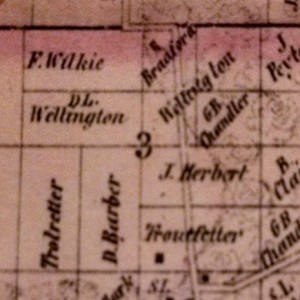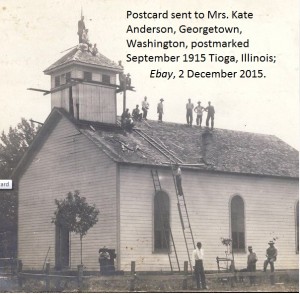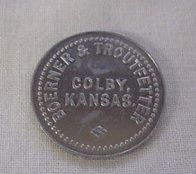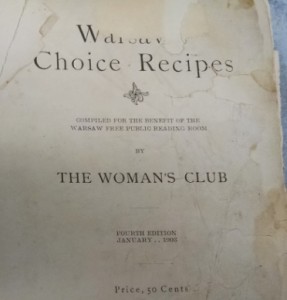I’ve made some discoveries of genealogically-related material on Ebay. I have yet to actually find an artifact or piece of ephemera actually belonging to an ancestor. What I have found are “ancestral-related” materials. 
Search term suggestions for Ebay:
- names of small towns with no additional search parameters
- tioga illinois
- “west point” illinois
- names of larger towns perhaps with the word genealogy attached or maybe an ancestral name:
- chicago thomas smith
- chicago wickiser
- name of a church your ancestor attended–consider adding the name of the town to that search
- ancestral names–unusual ones work better as surname searches:
- trautvetter
- rampley
- cawiezell
- eli smith harford maryland–I’d leave out the first name if the region is small
- names of an ancestral employer-doesn’t really work well for those of us with farming ancestors
- Farm equipment mentioned in an estate settlement. I found a 1870 era calendar printed by a reaper manufacturer that had made the corn planter used by a relative.
Search terms–search results only work if the seller has entered those words in the description of the item. Books are not full text searched. Some sellers do enter a list of all the surnames mentioned in an item in order to increase their sales.
Books
County histories, genealogies, and other genealogical books often appear for sale on Ebay. As mentioned elsewhere, make certain you are buying the original item if that’s what your bid is based on. There may be reprints of old books or digital scans of those books being sold on Ebay. There are also some individuals who sell “compilations of genealogical material.” Know what you are bidding on before you bid. If you are uncertain, share the link with someone you trust (and that you know won’t bid against you) and ask them if they think the item is an original, a paper reprint, or something else.
Post cards can be a great way to get illustrations of locations near where your ancestor lived, the local church, county courthouse, etc. I have been known to search for postcards mailed to or from small towns and read the images in hopes that an ancestor was somehow involved in getting or mailing the card.
Photographs
You may find photographs of your ancestor or of landmarks near where he lived.
The local ladies’ group may have published a recipe book as a fundraiser of some type. The one I purchased from Warsaw, Illinois, in the early 20th century didn’t mention any relatives but was still an interesting purchase. Often the sellers don’t list all the surnames these books contain as that probably takes more time than it is worth.
Who Knows What Else
It is difficult to tell what you may end up running across on Ebay that could relate to your family history research. I’ve found sheet music written by a relative in the early 20th century, fake coins used in a business promotion, maps, and postcards. If your ancestor owned a business, you may find advertising items listed. All the items were “original” except for one of the maps. In that case, the description indicated the item was a reprint. Always read the entire description before making a bid and never bid more than you are willing to pay.
Make certain you know what you are bidding on. Is it an original map–taken as a page from a book and sold as one page? Is it the original book? Is it a reprint of the book? Is it a digital scan of the book that is being sold (if so, it’s probably online somewhere)?
Note: All items shown here are items purchased on Ebay in the last several months.




No responses yet